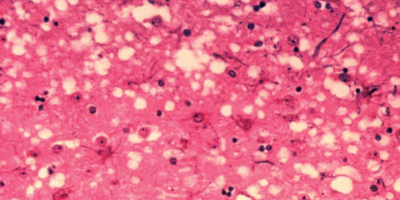Testosterone is a pivotal hormone that contributes to muscle growth, energy levels, and overall well-being in men. As age and lifestyle factors can lead to a decline in testosterone, many are turning to testosterone boosters and natural testosterone increase strategies to reclaim their vigor. This article will delve into proven techniques that can help you boost testosterone naturally, from diet and exercise to the use of testosterone supplements.
When discussing ways to enhance male hormone levels, various terms come into play, including hormone optimization and androgen enhancement. As men age, they may experience a drop in their androgen hormones, particularly testosterone, affecting their physical and mental health. Exploring methods for natural testosterone enhancement—such as lifestyle changes, dietary adjustments, and the use of specific supplements—can empower men to take charge of their well-being. This article will provide insights into effective strategies to promote hormonal balance and vitality.

The Importance of Testosterone in Men’s Health
Testosterone is a key hormone that plays a pivotal role in various aspects of men’s health, influencing not only physical characteristics but also emotional and mental well-being. It is crucial for the development of muscle mass, bone density, and the distribution of body fat. Low testosterone levels can lead to various health complications, including fatigue, depression, and reduced libido, which can significantly affect a man’s quality of life. Understanding the importance of maintaining healthy testosterone levels is essential for anyone looking to improve their overall health.
Moreover, testosterone levels naturally decline with age, which can exacerbate issues related to physical fitness and mental acuity. Recognizing the signs of low testosterone early, such as mood swings and decreased energy, can empower men to take proactive steps toward restoring balance. This not only helps in improving physical performance but also enhances mental clarity and emotional stability.
Engaging in Resistance Training for Testosterone Boost
Resistance training, particularly weightlifting, is one of the most effective methods for increasing testosterone levels naturally. Studies have shown that engaging in regular, high-intensity workouts can lead to significant boosts in testosterone production. This is especially true for compound exercises that involve multiple muscle groups, such as squats, deadlifts, and bench presses. These exercises create a metabolic demand that stimulates hormone production, making them essential for a testosterone-boosting workout regimen.
Incorporating resistance training into your weekly routine not only contributes to increased testosterone levels but also promotes muscle growth and fat loss. As muscle mass increases, so does the body’s capacity to burn fat, which is vital for maintaining hormonal balance. It’s recommended to focus on progressive overload—gradually increasing the weight or intensity of your workouts—to continuously challenge your body and stimulate further testosterone production.
Nutrition Strategies for Natural Testosterone Increase
A well-balanced diet plays a crucial role in maintaining healthy testosterone levels. Key nutrients such as zinc and vitamin D are particularly important for hormone production. Foods rich in zinc, including meat, nuts, and legumes, can significantly improve testosterone levels if consumed regularly. Additionally, vitamin D from sunlight exposure and dietary sources like fatty fish has been linked to elevated testosterone levels, highlighting the importance of a nutrient-rich diet.
Moreover, incorporating healthy fats, such as those from avocados and olive oil, can support hormone health. These fats are essential for the production of various hormones, including testosterone. Adopting a diet that emphasizes whole foods and minimizes processed foods can create a favorable environment for hormone production and overall health.
The Role of Sleep in Hormonal Balance
Quality sleep is a cornerstone of good health and plays a vital role in testosterone production. Research indicates that inadequate sleep can lead to a significant drop in testosterone levels, with studies showing that men who sleep only five hours per night may experience up to a 15% decrease in their testosterone levels. Prioritizing sleep is essential for maintaining hormonal balance and overall well-being.
To optimize sleep quality, men should aim for 7-8 hours of uninterrupted rest each night. Creating a calming bedtime routine, such as limiting screen time and establishing a consistent sleep schedule, can significantly improve sleep quality. A conducive sleep environment—cool, dark, and quiet—also helps promote deeper, more restorative sleep, further supporting healthy testosterone levels.
Managing Stress to Optimize Testosterone Production
Chronic stress is a significant contributor to hormonal imbalance, particularly in testosterone production. Stress leads to elevated cortisol levels, which can inhibit testosterone synthesis, creating a cycle that can be difficult to break. This is why implementing stress management techniques is crucial for anyone looking to boost their testosterone levels naturally.
Techniques such as mindfulness meditation, yoga, and engaging in hobbies can help mitigate stress and lower cortisol levels. Taking regular breaks, ensuring time for relaxation, and practicing deep-breathing exercises can also significantly reduce stress levels. By managing stress effectively, men can create a favorable hormonal environment that promotes optimal testosterone production.
The Impact of Body Fat on Testosterone Levels
Excess body fat, particularly around the abdomen, can negatively impact testosterone production. Studies have shown that higher levels of body fat are associated with lower testosterone levels, which can create a cycle of weight gain and declining hormone levels. Therefore, maintaining a healthy body weight is crucial for optimizing testosterone levels.
Incorporating both aerobic and resistance training into your fitness routine can help manage body fat effectively. Additionally, a balanced diet that supports weight management—rich in whole foods and low in processed sugars—can further assist in maintaining a healthy body composition. By keeping body fat in check, men can support their testosterone levels and overall hormonal health.
Exploring Natural Supplements for Testosterone Enhancement
Natural supplements can play a role in boosting testosterone levels, particularly for those who may not be getting enough nutrients from their diet alone. Supplements such as fenugreek and ashwagandha have shown promise in research for enhancing testosterone levels without the risk of harmful side effects. These herbs work by reducing cortisol levels, which can help restore hormonal balance.

Before starting any new supplement regimen, it is essential to consult with a healthcare professional. They can provide personalized advice based on individual health needs and ensure that the supplements chosen will not interfere with any existing medications or health conditions. Incorporating natural supplements into a comprehensive approach to health can lead to improved testosterone levels and overall vitality.
Frequently Asked Questions
What are the best natural ways to increase testosterone levels?
To increase testosterone levels naturally, engage in resistance training, optimize sleep patterns, maintain a balanced diet rich in nutrients like zinc and vitamin D, manage stress, and keep body fat in check. These methods support hormonal health and promote testosterone production.
How do testosterone boosters work to increase testosterone levels?
Testosterone boosters are supplements designed to enhance the body’s natural testosterone production. They often contain ingredients like fenugreek, DHEA, and ashwagandha, which can help optimize hormone levels and improve overall vitality.
Can diet really boost testosterone levels naturally?
Yes, diet plays a crucial role in boosting testosterone levels naturally. Consuming foods rich in zinc, healthy fats, and vitamin D, such as lean meats, nuts, and fatty fish, can significantly support testosterone production.
What lifestyle changes can help boost testosterone naturally?
To boost testosterone naturally, consider making lifestyle changes such as incorporating regular resistance training, ensuring adequate sleep, managing stress levels, maintaining a healthy weight, and moderating alcohol intake.
Are there any specific supplements that can help increase testosterone levels?
Yes, specific supplements like ashwagandha, fenugreek, and vitamin D have been shown to support testosterone levels. Always consult a healthcare professional before starting any new supplement regimen.
How does sleep affect testosterone levels?
Quality sleep is essential for testosterone production; studies show that inadequate sleep can lead to significant drops in testosterone levels. Aim for 7-8 hours of restful sleep each night to help maintain hormonal balance.
What role does exercise play in increasing testosterone levels?
Exercise, particularly resistance training and high-intensity workouts, is one of the most effective ways to increase testosterone levels. Regular physical activity helps promote hormonal balance and overall health.
| Technique | Description | Benefits |
|---|---|---|
| Engage in Resistance Training | Incorporate weightlifting and compound exercises into your workout regimen. | Promotes long-term increases in testosterone levels. |
| Optimize Sleep Patterns | Aim for 7-8 hours of quality sleep each night. | Improves hormone production and overall health. |
| Nutrition and Supplements | Focus on a balanced diet rich in zinc and vitamin D; consider supplements if needed. | Supports testosterone production and overall well-being. |
| Reduce Stress | Adopt stress management techniques like mindfulness and yoga. | Lowers cortisol levels, allowing for better testosterone production. |
| Keep Body Fat in Check | Combine aerobic and resistance training to manage weight. | Helps maintain hormonal balance and testosterone levels. |
| Consider Natural Supplements | Explore herbs like ashwagandha and fenugreek for support. | May increase testosterone levels naturally. |
| Limit Alcohol Intake | Moderate alcohol consumption to avoid hormone imbalance. | Helps maintain healthy testosterone levels. |
| Stay Active | Engage in regular cardiovascular exercises. | Supports hormone balance and overall health. |
Summary
To effectively increase testosterone levels, men should adopt a multifaceted approach that includes resistance training, optimizing sleep, maintaining a balanced diet, managing stress, and staying active. Each of these strategies plays a vital role in enhancing hormone production and overall health. By implementing these techniques, men can naturally boost their testosterone levels and improve their quality of life.











Comments